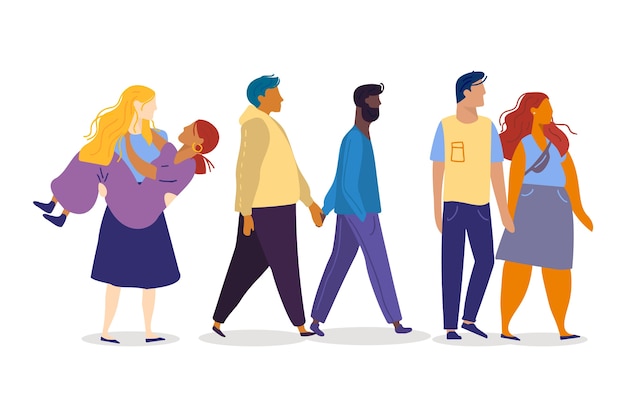HOMOPHOBIA AND LGBTQ+ DISCRIMINATION
The definition of homophobia is fear, hatred, discomfort with, or mistrust of people who are lesbian, gay, or bisexual. Homophobia can take many different forms, including negative attitudes and beliefs, aversion (rejection), or prejudice against people belonging to the LGBTQ+ community. It is often based on irrational fear and misunderstanding. Some people's homophobia may stem from conservative religious beliefs. People can have homophobic beliefs if they were taught them by their parents and relatives.
It is illegal to harass a person because of that person's sex. Harassment may include "sexual harassment" or unwelcome sexual advances, requests for sexual favors, and other verbal or physical harassment of a sexual nature. Harassment does not have to be exclusively sexual in nature, but can also include offensive comments about a person's gender.
It is not a secret or a surprise that the majority of Peruvians belonging to the LGBTQ+ community are not able to openly say their sexual orientation. And the few people who decide to go out into public spaces with their partners, supporting the community, etc. They are victims of constant judging looks, denigrating words and even in some cases of aggression. This is because discrimination is motivated by the prejudices and stereotypes that are evident in an unequal society such as Peru. Most Peruvians consider people belonging to this community as sick, promiscuous, STD carriers, etc. That is why thousands of people hide who they are and refrain from being happy. The social discrimination and contempt they feel is so much, that they can not even open up with their own family or friends, for fear of being rejected and humiliated, those niches where a person usually feels protected become an environment full of anxiety.
This type of discrimination continues in access to employment and in the employment cycle; In extreme cases, LGBTQ+ workers may experience bullying, harassment, sexual abuse, or physical abuse. Often the cause of discrimination, harassment and exclusion from the labor market is the perception of non-conformity with heteronormativity (the social belief that it is “normal” to be heterosexual), and also preconceived ideas about appearance and behavior supposed to have a woman and a man. Often, a woman who is perceived as “masculine” or a man who is perceived as “effeminate” in his behavior or appearance are victims of discrimination or harassment. In many cases, lesbian, gay and bisexual workers reported being subjected to invasive questions about their private lives and having to justify why they were not heterosexual.
The fear of being victims of discrimination and violence often leads many LGBT workers to keep their sexual orientation secret. The lesbians and gays surveyed indicated that in conversations at work they changed the name of their partner, or simply avoided talking about their private lives.
All this makes us conclude that despite living in a country full of diversity, we are still afraid of our differences. People who belong to the LGBTQ+ community like all of us deserve respect, deserve peace of mind when walking the streets, deserve to get jobs without lying about their sexual orientation, deserve to be happy like anyone else and love those who desire. Love is too beautiful to hide it inside the closet, let's cultivate more love and less hate.
REFERENCES:
Flores, A. (2021, 2 julio). Por qué es válido no salir del clóset con tu familia. Homosensual.
The impact of the discrimination on people in the LGBTQ. (s. f.). Beyond Blue.
N. (2021, 9 junio). ¿Qué es la discriminación LGBT y que sufren las personas de esta comunidad? La Verdad Noticias.



Comentarios
Publicar un comentario